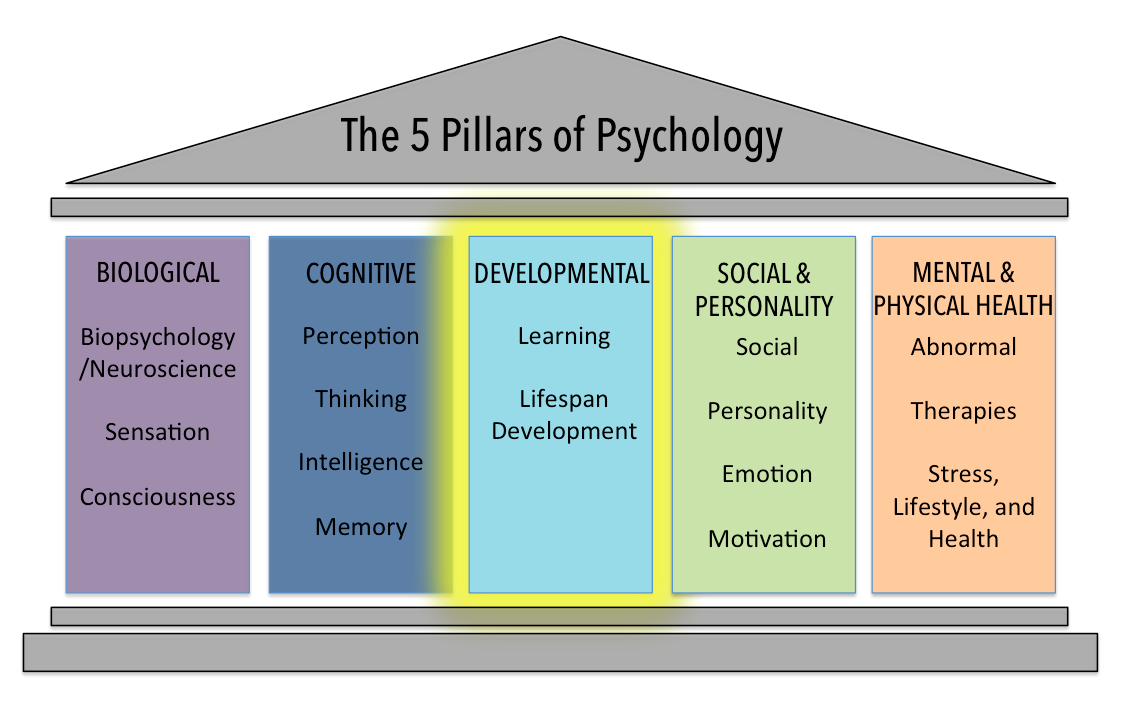Pillar III: Developmental
Learning Objectives
- Describe the basic interests and applications of developmental psychology

Developmental psychology is the scientific study of development across a lifespan. Developmental psychologists are interested in processes related to physical maturation. However, their focus is not limited to the physical changes associated with aging, as they also focus on changes in cognitive skills, moral reasoning, social behavior, and other psychological attributes. Early developmental psychologists focused primarily on changes that occurred through reaching adulthood, providing enormous insight into the differences in physical, cognitive, and social capacities that exist between very young children and adults. For instance, research by Jean Piaget demonstrated that very young children do not demonstrate object permanence. Object permanence refers to the understanding that physical things continue to exist, even if they are hidden from us.

If you were to show an adult a toy, and then hide it behind a curtain, the adult knows that the toy still exists. However, very young infants act as if a hidden object no longer exists. The age at which object permanence is achieved is somewhat controversial (Munakata, McClelland, Johnson, and Siegler, 1997).
Behavioral Psychology
Another critical field of study under the development domain is that of learning and behaviorism, which you read about already. The primary developments in learning and conditioning came from the work of Ivan Pavlov, John B. Watson, Edward Lee Thorndike, and B. F. Skinner. Contemporary behaviorists apply learning techniques in the form of behavior modification for a variety of mental problems. Learning is seen as behavior change molded by experience; it is accomplished largely through either classical or operant conditioning.
Try It
Licenses and Attributions (Click to expand
CC licensed content, Shared previously
- The Developmental Domain. Authored by: Lumen Learning Provided by: Lumen Learning. License: CC BY: Attribution Located at: https://pressbooks.online.ucf.edu/lumenpsychology/chapter/reading-developmental-psychology/
- Contemporary Psychology. Authored by: OpenStax College. License: CC BY: Attribution. License Terms: Download for free at https://openstax.org/books/psychology-2e/pages/1-introduction Located at: https://openstax.org/books/psychology-2e/pages/1-3-contemporary-psychology.
- Behaviorism content. Provided by: Boundless.License: CC BY-SA: Attribution-ShareAlike Located at: https://www.boundless.com/psychology/textbooks/boundless-psychology-textbook/introduction-to-psychology-1/theoretical-perspectives-in-modern-psychology-23/behavioral-psychology-113-12650/.
study of psychological disorders, including their symptoms, causes, and treatment; manifestation of a psychological disorder
